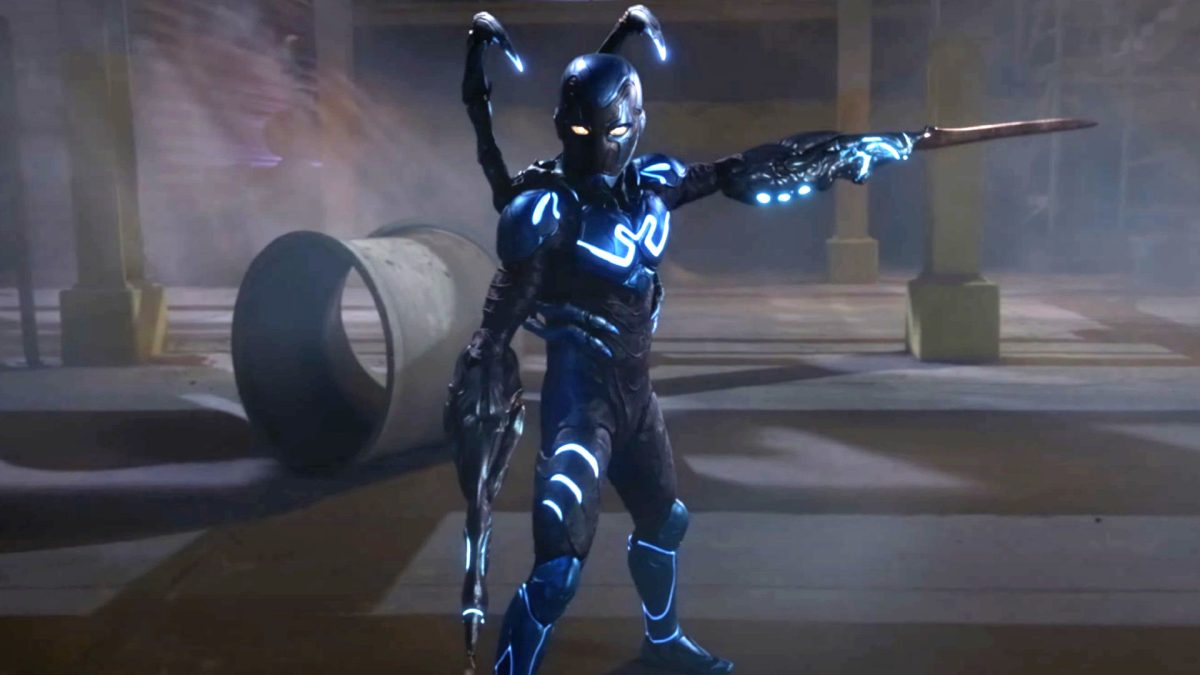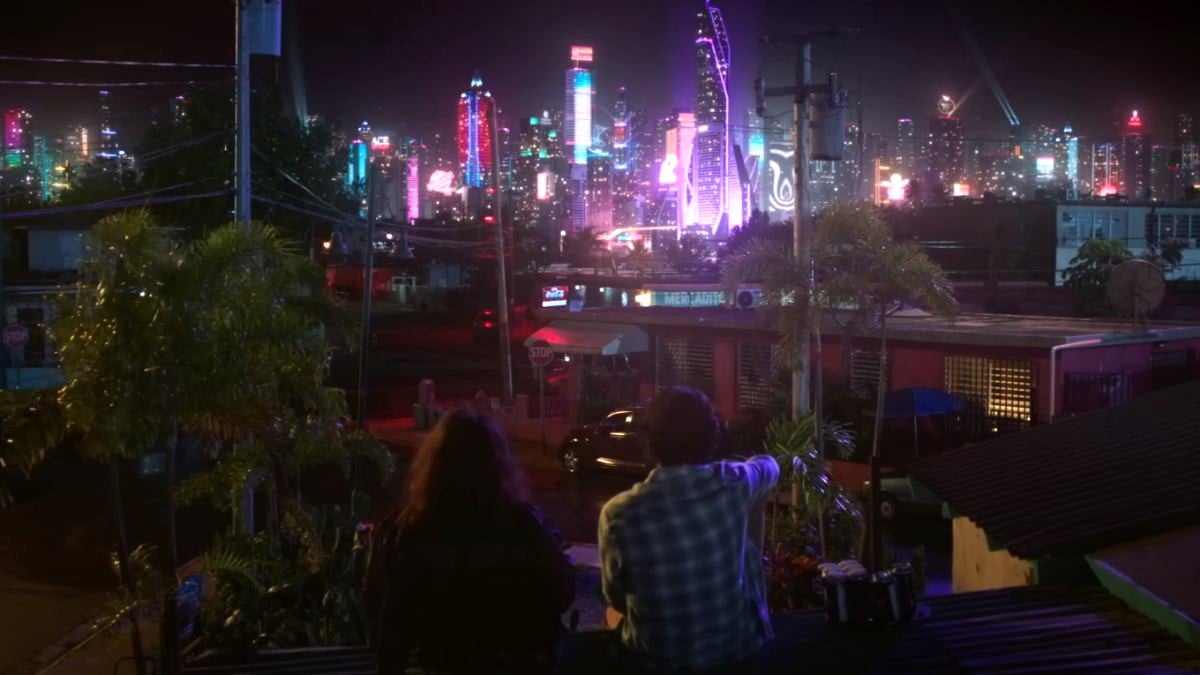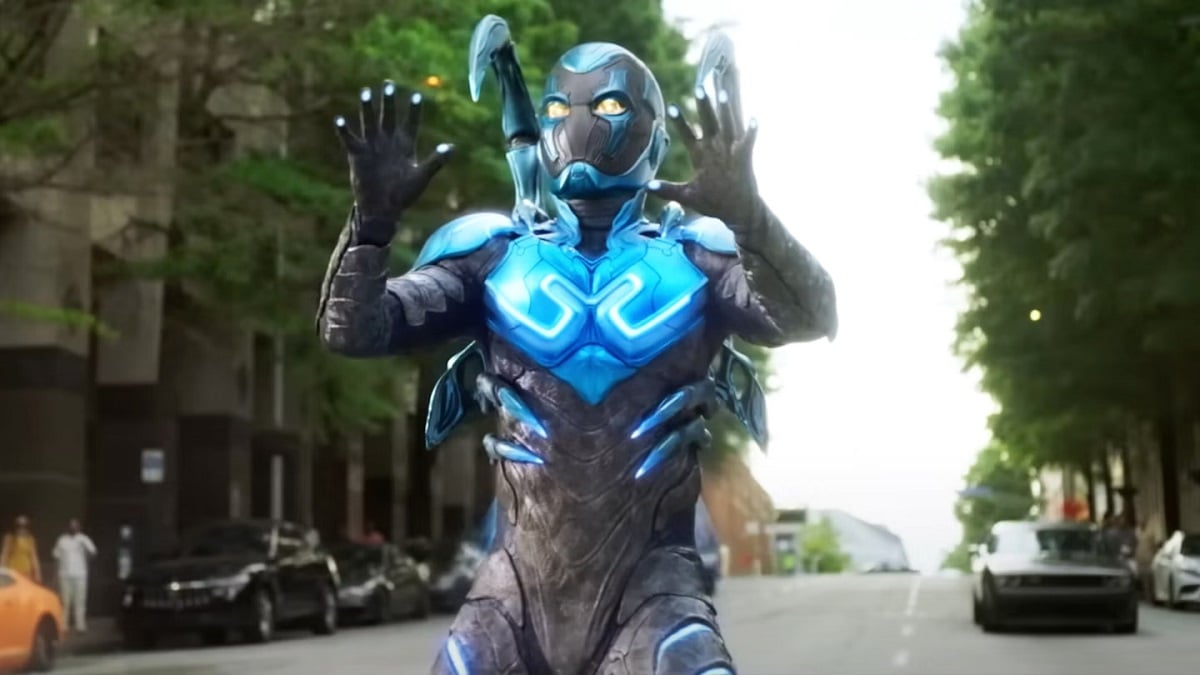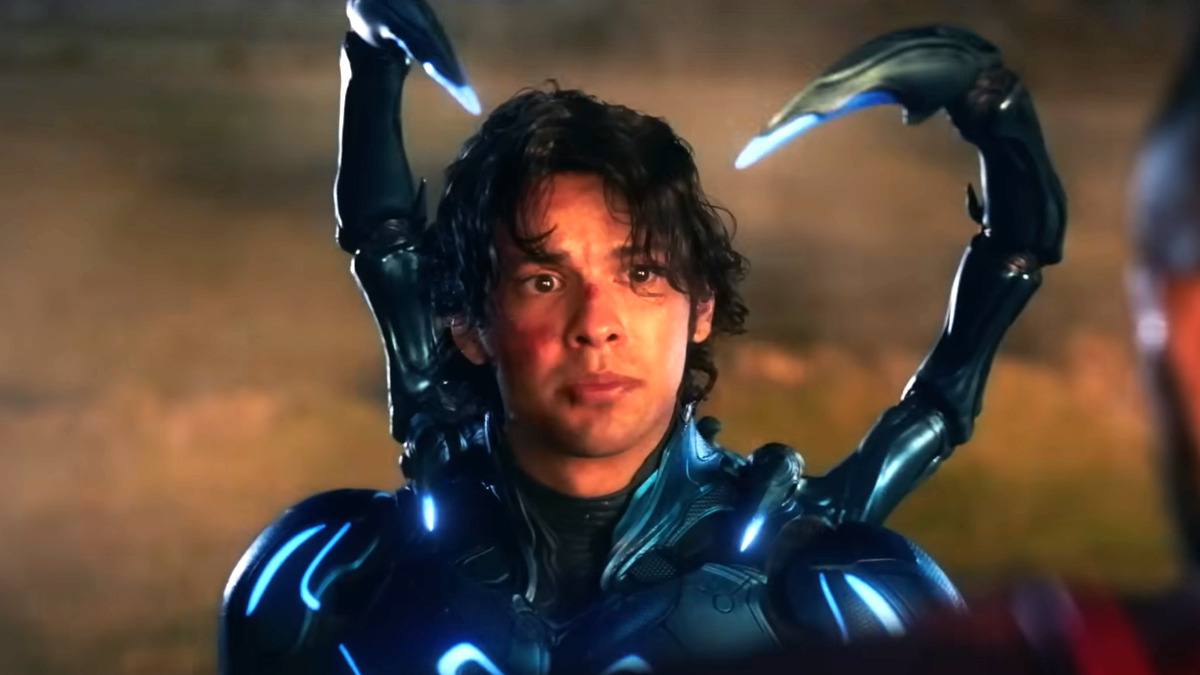Listen, it’s no secret that the superhero genre has been struggling. DC and Marvel have both produced some truly mediocre-at-best products in recent years. The fact that we have shows like The Boys, which takes the genre and flips it on its head, shows that the general audience has become intimately aware of the usual twists and turns and yearns for something different. Many of the less-successful superhero movies — see Morbius — have become memetic devices for discussing ‘superhero fatigue.’ The latest addition to their number is Blue Beetle.
Blue Beetle has been on track for an incredibly low box office haul. That’s inspired countless jokes and memes about the film’s performance, with some gleefully celebrating their schadenfreude. But this approach misses the forest for the trees. Blue Beetle’s underperformance probably won’t affect whether or not the next Batman adaptation gets greenlit, but it will probably affect how Latinos are represented in cinema.

While Latinos make up nearly 20% of the American population, only about 3% of TV leads and 5% of movie leads are representative of our culture. Think back: When is the last time you can remember a film headlined by Latinos? Our experiences are largely ignored and silenced — ironic, given that Hollywood resides in a state now majority Latino. Despite this, Latinos are frequently represented on-screen as background characters, jokes, or stereotypes.
“That doesn’t mean anything,” you might argue, “A movie still needs to be good if I’m going to go see it.” Of course, taste is subjective, and I’m not arguing that you should go see a movie just because it features some great representation. But Blue Beetle director Ángel Manuel Soto clearly had a vision, and he executed that vision with style.
In fact, Blue Beetle is actually probably the most unique of the DCEU’s offerings. While other DC properties have been made by committee, Blue Beetle has real heart behind it as it gleefully depicts the Latino experience in the United States. Its possible failure should be recognized for what it means for the Latino community and its wider depiction in the media.
Executives are known for caring most about the bottom line. Many, many creative decisions get stifled by an overzealous businessman eager to maximize their profit. These executives are human with their own biases, though, and these biases often interfere with how their business is done.
In the minds of producers and executives and various other suits, one minority-led project can become a symbol of how other minority-led projects might do. This leads to a chain reaction wherein representation relies on the box office numbers of a singular project, no matter how distantly related it might be to others in the genre. Take Catwoman or Elektra as examples: both were legendary disappointments that were plagued by behind-the-scenes issues.

Executives saw these failures, however, and decided that the real issue was that Catwoman and Elektra were female-led. There wouldn’t be another female-led superhero movie until 2019’s Captain Marvel. For context, Daredevil had its own failed film franchise, and the character would still get an entire, acclaimed Netflix series in that same timeframe. Daredevil‘s failure never precluded the presence of another white lead, nor did it even affect its chances of getting another shot at the limelight.
Meanwhile, Hasbro executives have come away from Barbie thinking they should greenlight thirty projects about board games. That kind of leeway and goodwill just isn’t something that’s given to non-white and/or non-male leads.
And that’s the crux of the issue: if Blue Beetle does fail at the box office, the main takeaway should be that the onus is on the studio. The film’s cast is currently on strike with SAG thanks to the unfair treatment the guild has received from the studio system. Blue Beetle is a perfect example of the power of writers and actors: the creative team that gave the movie its life and soul, not the executives.
David Zaslav’s regime has seemingly done everything in its power to trounce Blue Beetle. Soto has already revealed that he had to fight to move the project into cinemas in the first place — a theatrical run that already has a digital release date of Sept. 19 — and the movie had a poor marketing campaign. As a Latino myself, few who I’ve talked to even know that there’s a movie out by the name of Blue Beetle.

On my own way to the theater, I happened to strike up a conversation with my Lyft driver, who was of Mexican descent, as I am. We spoke about what it’s like to be Latino in America, and I noted that many of his experiences were echoed within the movie itself. However, when I told him I was reviewing Blue Beetle, the man asked if that was a new restaurant.
With the underhanded way studios have been acting in recent months, one has to wonder if it’s almost a calculated ploy — a sacrifice to divide the unions further. It’s as though the studios have been canceling or sabotaging projects left and right (look at A League of Their Own’s reneged renewal) to foster bad will against the protestors.
It wouldn’t be the first time a Latin American superhero was used for Zaslav’s purposes. Leslie Grace’s Batgirl would have been the first Latina-led superhero movie, but we all know how that turned out. Sadly, both Batgirl and Blue Beetle have been treated abominably by Warner Bros. Unfortunately, it’s unsurprising that the Latin American projects are the ones being thrown under the bus. History has shown, time and time again, that studios are uninterested in courting the Latino demographic, further rendering our stories invisible to the masses.

Blue Beetle should have been a triumph for its Latin American cast, but the studios and their greed have caused one of the longest strikes in Hollywood history. What could have been resolved months ago is being dragged out to comic proportions because the studios want to plug their ears and hope everything goes back to how it was.
The deal would have cost far less than the strikes have cost the studios. It’s time for them to understand that they must change their ways in order for the industry to thrive. A movie like Blue Beetle shouldn’t be made fun of — it’s just another failure on the part of the executives.

